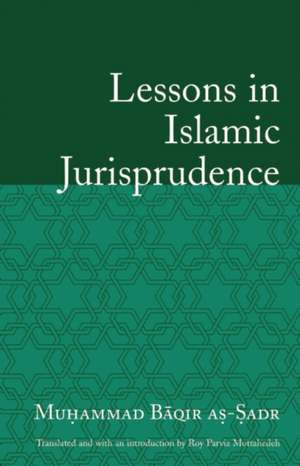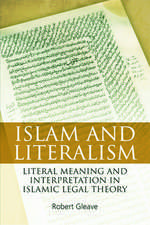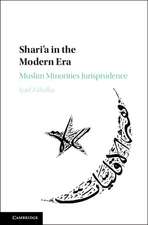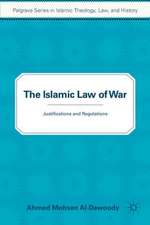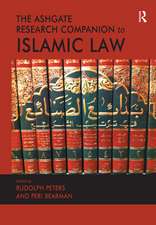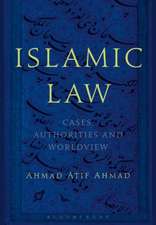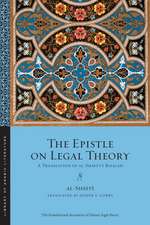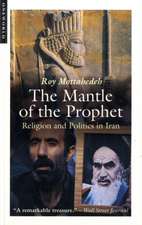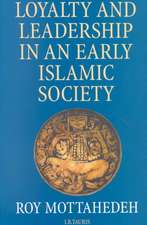Lessons in Islamic Jurisprudence
Autor Roy Mottahedehen Limba Engleză Paperback – sep 2005
Preț: 210.59 lei
Nou
Puncte Express: 316
Preț estimativ în valută:
40.30€ • 43.76$ • 33.85£
40.30€ • 43.76$ • 33.85£
Carte tipărită la comandă
Livrare economică 23 aprilie-07 mai
Preluare comenzi: 021 569.72.76
Specificații
ISBN-13: 9781851683932
ISBN-10: 1851683933
Pagini: 224
Dimensiuni: 143 x 222 x 14 mm
Greutate: 0.37 kg
Editura: Oneworld Publications
Colecția Oneworld Publications
ISBN-10: 1851683933
Pagini: 224
Dimensiuni: 143 x 222 x 14 mm
Greutate: 0.37 kg
Editura: Oneworld Publications
Colecția Oneworld Publications
Notă biografică
Translator Roy Mottahedeh is Gurney Professor of History in the Middle East Studies Department at Harvard University, and author of the acclaimed The Mantle of the Prophet. He lives in Brookline, MA.
Cuprins
1 Characterization of jurisprudence: a preliminary word; characterization of jurisprudence; the subject matter of jurisprudence; the discipline of jurisprudence is the logic of legal understanding; the importance of the discipline of jurisprudence in the practice of derivation; jurisprudence is to legal understanding as theory is to application; the interaction between legal-understanding thought and jurisprudential thought; the permissibility of the process of deriving divine-legal rulings. 2 Substantiating arguments: the divine-law ruling and its subdivision; the division of rulings into injunctive and declaratory; categories of the injunctive ruling; areas of discussion in the discipline of jurisprudence; the divine-law argument. 3 Procedural principles: the fundamental procedural principle; the secondary procedural principle; the principle of the inculpatoriness of non-specific knowledge; the presumption of continuity. 4 The conflict of arguments: conflict between substantiating arguments; conflict between (procedural) principles; conflict between the two types of argument.
